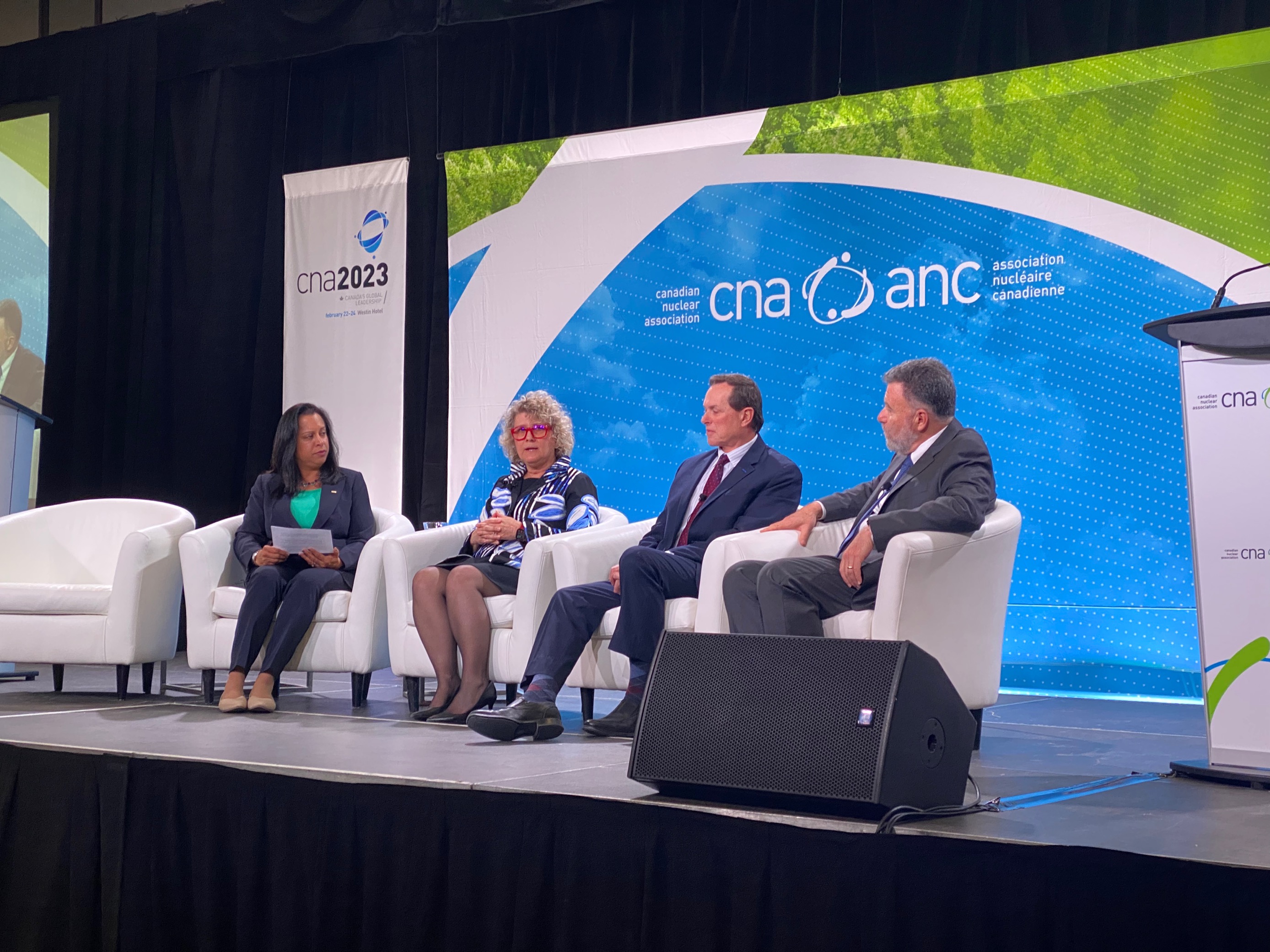The President and CEO of the Nuclear Waste Management Organization (NWMO), Ms. Laurie Swami, shared her excitement for the momentum of Canada’s plan for used nuclear fuel at the Canadian Nuclear Association’s (CNA) annual conference in Ottawa. This year’s conference focused on Canada’s global leadership in nuclear technology and innovation. During a panel discussion, Ms. Swami spoke about the role of the nuclear industry — including long-term plans to manage the waste — in reducing the impacts of climate change. Nuclear technologies are part of an approach to combat climate change, transition to low-carbon economies and sustain increasing energy demands.
“We’re seeing real progress, here at home and globally, as more and more countries approve and ultimately begin building deep geological repositories to safely store used nuclear fuel,” said Ms. Swami. “It’s clear that this solution is no longer an abstract concept, but very much a reality.”
“At the NWMO, we are working to ensure nuclear waste management continues to be a Canadian strength,” she added. “We had a lot of momentum in 2022 — momentum that will continue into this new year.”
The CNA conference highlighted the recent renaissance of the nuclear industry internationally. In Canada, there is an active research sector exploring new technologies such as small modular reactors (SMRs), fuel reprocessing and other types of advanced reactors. Canada’s plan to safely contain and isolate the country’s used nuclear fuel includes the used nuclear fuel that exists today and what will be produced in the future, including from SMRs and other new technologies. No matter the source of the used nuclear fuel, safety will always be our highest priority. Host communities for the planned deep geological repository will be part of decision-making for plans to manage SMR-related used nuclear fuel in the repository. For example, through discussions about partnership agreements, the NWMO will work with potential host communities to develop and agree on a process for managing future changes to the type or volume of waste to be managed in the repository. As Ms. Swami noted in her panel, Canada has made significant progress over the past two decades and the NWMO is working actively with communities to select a site for Canada’s deep geological repository in 2024.
The NWMO is recognized around the world as a leader in used nuclear fuel management. Canada’s plan will deliver positive, lasting benefits that contribute to the long-term well-being of the host area and ensure safety for generations to come.

